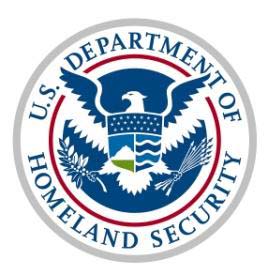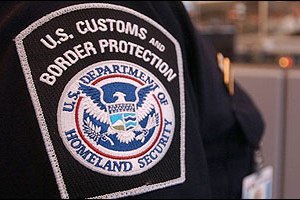Immigration News & Updates eNewsletter
eNewsletter
POSTING DATE: MARCH 28, 2016
Learn More About:
Immigration News & Updates eNewsletter © 2011 - 2016
For questions about U.S. Residency, Green Cards and Immigration Visas, Visit our Website at: www.ImmigrateToday.com or call our office at: (954) 382-5378
Check Out This Cool Stuff For Immigrants....
Immigration
Questions & Answers
Question: My sister became an American Citizen early last year and sponsored my mom, who has now gotten her Green Card. I am 27 and single and both my sister and mother want to sponsor me to immigrate to the U.S. Please guide me as to who should apply for me, either my sister or my mother and long it will take for me to immigrate? Thank you
Answer: The waiting line for adult, single children of U.S. Residents is about 7-8 years or longer (called F1 Family Preference category). However, the waiting line for siblings (brothers & sisters) of U.S. Citizens is even longer – 12-14+ years (called F4 Family Preference category). Please note that in the F1 category, if you get married before your mother becomes a U.S. Citizen, your Immigrant Visa case will be cancelled. This is not the case with your sister’s sponsorship, since the F4 category for siblings includes spouses and children.
In your case, you could have both your U.S. Resident mother and U.S. Citizen sister file family petitions for you. There is no limit on the number of immigrant visa petitions that can be filed for an immigrant in different family categories. I hope this is helpful.
This Week's Immigration News
New Florida Law Allows Children Of Legal Immigrants
To Receive KidCare Healthcare Coverage
The Florida Legislature recently passed a law which will allow thousands of children of legal Immigrants in the state to receive subsidized healthcare coverage beginning July 1st, by expanding the state's KidCare program.
Until now, minor children of legal Immigrants would only be eligible to participate in the KidCare program once their parent had been a legal Immigrant for 5 years. Under the new law, the 5 year waiting period has been eliminated. The new expanded benefits are expected to assist more than 17,000 qualifying Floridian children under age 19.
Children whose parent(s) satisfy the financial need requirements will be covered under the Children's Health Insurance Program, or CHIP (which includes KidCare) and Medicaid.
Department of Homeland Security Announces New Webinar
For Students On STEM OPT 24-Month Extension
The U.S. Department of Homeland Security (DHS) recently released a new rule extending Work Authorization for students in qualifying STEM fields (Science, Technology, Engineering and Math) for Optional Practical Training “OPT” in their fields for up to 24 months.
The DHS Student and Exchange Visitor Program (SEVP) will host a live Webinar for students and others on Thursday, April 14, 2016 from 2-3 p.m. to discuss implementation and other issues which are scheduled to take effect on May 10, 2016.
You can register for the Webinar beginning April 7th:
Visitors to the U.S. no longer receive an I-94 card upon entry, which is necessary to change or extend status in the U.S. when making an application with the USCIS. To access and download an I-94 card and view past travel history, visitors can access the Customs and Border Protection (CBP) Website which gives Non-immigrant foreign nationals travelers access to printout their I-94 record, as well as a U.S. travel history going back five years from the request date.
Visitors to the Website must enter their name, date of birth, and passport information. To access the current I-94 record, click on “Get Most Recent I-94”. The record can then be printed out and used for all required immigration-related purposes.
U.S. Government Website Provides I-94 Printout And U.S. Travel History
To access U.S. travel history for the past five years, click on “Get Travel History” and print out the report.
Question: Me and my wife are both naturalized U.S. Citizens and we just had our first child. My wife’s mother is here visiting us and helping my wife care for our daughter. We want to find out about having her stay and get residency. Can you please help us with the process and let us know how long does it take and whether my mother-in-law will need to return home or can she stay here and get her Green Card?
Answer: The Parents of U.S Citizens are in a special category called “Immediate Relatives” which allows them to immigrate to the U.S. immediately, meaning they are not required to wait for a visa to be available like many other family categories. There are two options for Parents to obtain U.S. Residency, depending upon whether they have a U.S. Visa. The first option is called U.S. Adjustment of Status: This is for Parents who come to the U.S. on a Tourist or other legal visa and decide to immigrate, we can apply to adjust status to Residency inside the U.S., obtain their Work and Travel Permit within about 60-90 days and Green Cards within about 8-12 months. The second option, called Consular Processing is for Parents who either don’t have a U.S. visa or who prefer to stay in their home country while processing for an Immigrant Visa. The current processing time is about 8-12 months.
In your case, since your mother-in-law is already here, we can adjust her status to a Green Card while she is in the U.S. and there is no need for her to return to her country. If she does need to travel while waiting for her Residency, we can obtain a travel permit for her called “advance parole” which will allow her to travel in approx 60-90 days time.
Helpful Immigration Tips You Can Use
Applications filed with the USCIS generally require that supporting documentation be submitted in order to prove eligibility. Such documents include Birth Certificates, Marriage Certificates, Divorce Decrees, Criminal documents, etc. The USCIS requires that all official documents be a copy of either the original, or of the certified copy of the original.
Never send original documentation to the USCIS unless specifically requested. Original or certified documents are generally only required to be provided to the USCIS officer during an interview. Therefore, if you send original document to the USCIS Service Center, you will no longer have the original document to bring with you as required to the interview at your local Field office.
Never Send Original Supporting Documents When Filing Applications With the USCIS
Finally, always make a copy of everything that you send to the USCIS for your records, otherwise, you have no proof of what you sent. Good luck!
Immigration How To:
How Do I Know If I Need An Affidavit of Support?
Affidavits of Support must always be filed by the U.S. citizen or Resident for their immigrating family member(s), even if they do not meet the minimum financial guidelines. In such cases, a Joint-Sponsor who does meet the financial requirements can provide an additional Affidavits of Support and will be bound by the same obligations. Joint-Sponsors must be either a Resident or U.S. Citizen, but are not required to be a family member. The sponsor’s obligation lasts until the immigrant either becomes a U.S. citizen, has earned 40 work quarters credited toward Social Security (about ten years of work), dies, or permanently leaves the United States. If the immigrant has already been living in the U.S. and worked legally, earning work credits before applying for the green card, those count toward the 40.
Minor Children (under age 18) of U.S. Citizens who automatically obtain U.S. Citizen upon being granted Residency are not required to have an Affidavit filed on their behalf, but must file a waiver form instead.
In order to sponsor a family member to immigrate to the U.S. to become a Resident (receive a Green Card), all U.S. citizens and Residents must prove that they have the ability to support their foreign relative financially for a period of years. This is required to show the U.S. government that the family member immigrating is not someone likely to immigrate to the U.S. then go collect government assistance (often called "welfare").
The Affidavit is a legally binding promise by the Sponsor that they will take financial responsibility if the need arises so that their relative will not collect government assistance and if that does occur, the Sponsor will be responsible to reimburse any government agencies from which their immigrant family received financial assistance.












